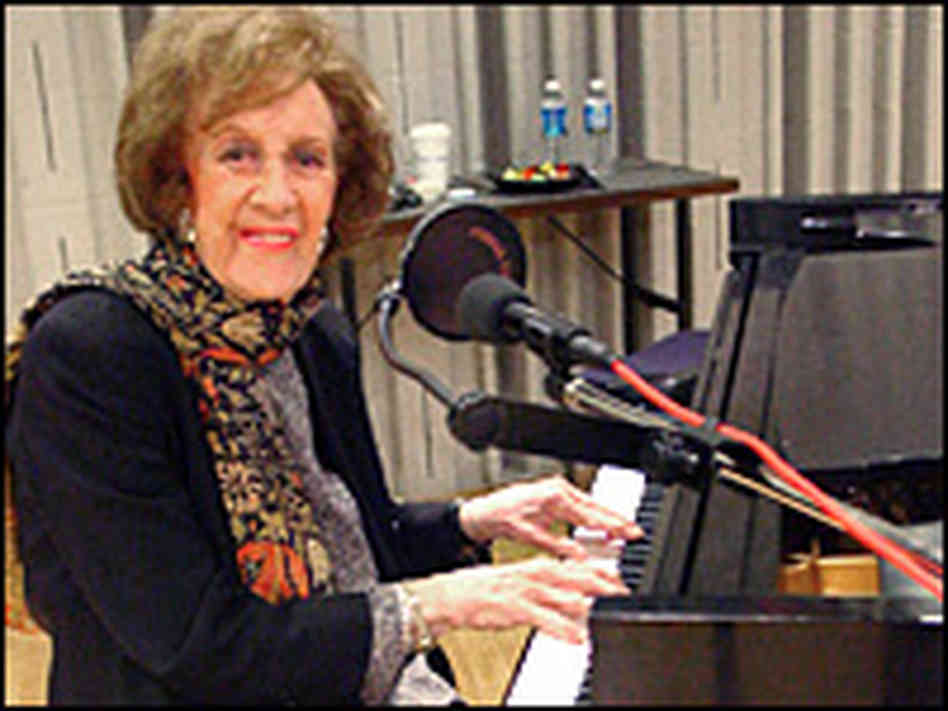I first heard Marian McPartland play in person at the Women’s Jazz Festival in Kansas City. That was, if memory serves, in 1979, back when she was working with Brian Torff, and I confess with some retrospective embarrassment that it was his fleet-fingered bass solos, not her harmonically iridescent pianism, that excited me most. Yet I understood at once that she was an artist of unusual quality, and I can still hear in my mind’s ear the shining simplicity with which she played Johnny Mandel’s “Emily” that night. When she and Torff started recording together for Concord Jazz, I began to listen more attentively to her playing, and soon came to understand how remarkable it was.
 In those days, needless to say, it never occurred to me that I would ever meet so celebrated a musician, but in 1998, after I moved to New York, I drove out to her Long Island home to interview Marian for a profile that appeared in the New York Times on the occasion of her eightieth birthday. She told me that she liked the piece, which delighted me beyond words. I like to think that it captured something of her distinctive personality, at once reserved and forthright:
In those days, needless to say, it never occurred to me that I would ever meet so celebrated a musician, but in 1998, after I moved to New York, I drove out to her Long Island home to interview Marian for a profile that appeared in the New York Times on the occasion of her eightieth birthday. She told me that she liked the piece, which delighted me beyond words. I like to think that it captured something of her distinctive personality, at once reserved and forthright:
It is hard not to wonder whether Ms. McPartland’s modesty about her accomplishments arises in part from the fact that she is a woman who has made her way in what for a very long time was almost exclusively a man’s world. This diffidence stands in surprising contrast to the bright clarity of her piano playing, which grows more harmonically adventurous with each passing year. ”I’ve become a bit more–reckless, maybe,” she says. ”I’m getting to the point where I can smash down a chord and not know what it’s going to be, and make it work. And though I’ll never swing like Mary Lou Williams, I’m better at it than I used to be.”
Later that year Marian asked me to write the liner notes for one of her albums, and from then on I felt that I could claim acquaintance with her. We were never remotely close, alas: I found her a bit intimidating, and the great gap of years that separated us made it impossible for me to reach out to her other than sporadically. I did encourage Marian on more than one occasion to write a memoir–she was a very good writer–but got nowhere. She told me that she preferred to spend her time and energy playing piano, not writing, and I couldn’t argue with that, especially since she was still playing wonderfully well. By then arthritis had shaved away the sharp edge of her technique, but her ear was as keen as ever, and even at their least agile, her solos were always worth hearing.
Today I suppose she’s best known for Piano Jazz, which she hosted for NPR from 1978 to 2011. She proved to be an extraordinarily deft interviewer, and the program was a singular contribution to jazz history. But it is as a performer, not a radio personality, that Marian will be remembered longest. I suppose she inhabited a tier just below the indisputable greats–that’s what she herself would undoubtedly have said–but there was never a time when her playing was anything other than individual and satisfying. Her passing leaves yet another gap in the skyline of my life. I am honored to have known her.
* * *
Marian McPartland plays her composition “Afterglow” at the Monterey Jazz Festival in 1975:
